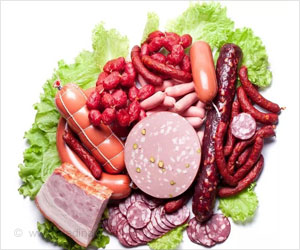Ultra processed food can cause premature deaths due to their low nutritional value and high additive contents.
- Ultra processed food (UPF) accounts for more than 10% of all-cause premature, preventable deaths in Brazil
- Sodium, sugar and trans fats, and specific foods or drinks, such as sugar sweetened beverages are critical ingredients of ultra processed food
- Reducing consumption of UPF's by 50% can potentially prevent premature deaths
“Previous modelling studies have estimated the health and economic burden of critical ingredients, such as sodium, sugar and trans fats, and specific foods or drinks, such as sugar sweetened beverages,” explained lead investigator Eduardo A.F. Nilson, ScD, Center for Epidemiological Research in Nutrition and Health, University of São Paulo, and Oswaldo Cruz Foundation, Brazil. “To our knowledge, no study to date has estimated the potential impact of UPFs on premature deaths. Knowing the deaths attributable to the consumption of these foods and modeling how changes in dietary patterns can support more effective food policies might prevent disease and premature deaths.”
Dr. Nilson and his colleagues modeled data from nationally representative dietary surveys to evaluate the baseline intakes of UPFs and it was found that across all age groups and sex strata, consumption of UPFs ranged from 13% to 21% of total food intake in Brazil in 2019. A total of 541,260 adults aged 30 to 69 died prematurely in 2019, of whom 261,061 were from preventable, noncommunicable diseases. The model found that approximately 57,000 deaths that year could be attributed to the consumption of UPFs, which corresponded to 10.5% of all premature deaths and 21.8% of all deaths from preventable noncommunicable diseases in adults aged 30 to 69. The investigators suggested that in high income countries such as the United States, Canada, the UK, and Australia, where UPFs account for more than half of total caloric intake, the estimated impact would be even higher.
With these statistics in hand, it was evident that UPFs have steadily replaced the consumption of traditional whole foods, such as rice and beans, over time in Brazil. Reducing the consumption of UPFs and promoting healthier food choices may require multiple interventions and public health measures, such as fiscal and regulatory policies, changing food environments, strengthening the implementation of food-based dietary guidelines, and improving consumer knowledge, attitudes, and behavior.
Reducing consumption of UPFs by 10% to 50% could potentially prevent approximately 5,900 to 29,300 premature deaths in Brazil each year.
“Consumption of UPFs is associated with many disease outcomes, such as obesity, cardiovascular disease, diabetes, some cancers, and other diseases, and it represents a significant cause of preventable and premature deaths among Brazilian adults,” said Dr. Nilson. “Even reducing consumption of UPFs to the levels of just a decade ago would reduce associated premature deaths by 21%. Policies that disincentivize the consumption of UPFs are urgently needed.”
A Fall in Nutritional Choices
As per the global data of consumption of ultra processed food it was noted that the highest consumption was by the United States of America where the consumption of UPF has grown to nearly 57% (1✔ ✔Trusted SourceUltra-processed food consumption among US adults from 2001 to 2018
Go to source).
Several countries that follow are the United Kingdom, Canada, Barbados, Australia, France, Belgium, Chile, Brazil, Taiwan and Mexico. Colombia has the least usage of UPFs at 15.9 percent (2✔ ✔Trusted Source
Ultra-Processed Foods and Nutritional Dietary Profile: A Meta-Analysis of Nationally Representative Samples
Go to source).
In India, the data clearly suggests that there is a significant rise in the consumption of UPFs in the past 15 years. According to a study commissioned by Food Safety and Standards Authority of India (FSSAI), more than 68% of food available in market were unhealthy (3✔ ✔Trusted Source
The WHO South-East Asia Region Nutrient Profile Model Is Quite Appropriate for India: An Exploration of 31,516 Food Products
Go to source).
What Makes UPFs Harmful?
Scientific evidence gathered on UPF indicate that these products are high in salt, sugar or fats leading to a negative impact on health. Intake of UPFs alters the core functions such as digestion, metabolism, and immune mechanisms. Food additives such as colorants, emulsifiers have the potential to cause chronic inflammatory diseases. Beverages that include artificial sweeteners are linked to causing cancer. During packaging, potentially toxic compounds are added into the food, especially with long exposures (4✔ ✔Trusted SourceUltraprocessed Food: Addictive, Toxic, and Ready for Regulation
Go to source).
A Unique Pandemic Link
In recent studies it was found that there was a significant rise in the consumption of ultra processed food but at the same time this this ultra processed food put your life at a higher risk to contract COVID 19 infection (5✔ ✔Trusted SourceImpact of ultra-processed food intake on the risk of COVID-19: a prospective cohort study
Go to source).
The main reason for the rise of Ultra processed food is it being marketed as ‘healthy’ and ‘safe’ and with mass production of these in place, the products are now economical as well as feasible. Due to high demand of these products, they are now being produced in masses, making them more friendly to the pockets.
There is a high need for a tool that can help in keeping the circulation of such products in check, stronger policies are required in place to control the quality of such products and there should be stricter guidelines on promotion of products that do not check the tick box of healthy.
References :
- Ultra-processed food consumption among US adults from 2001 to 2018 - (https://pubmed.ncbi.nlm.nih.gov/34647997/)
- Ultra-Processed Foods and Nutritional Dietary Profile: A Meta-Analysis of Nationally Representative Samples - (https://pubmed.ncbi.nlm.nih.gov/34684391/)
- The WHO South-East Asia Region Nutrient Profile Model Is Quite Appropriate for India: An Exploration of 31,516 Food Products - (https://pubmed.ncbi.nlm.nih.gov/34444959/)
- Ultraprocessed Food: Addictive, Toxic, and Ready for Regulation - (https://pubmed.ncbi.nlm.nih.gov/33167515/)
- Impact of ultra-processed food intake on the risk of COVID-19: a prospective cohort study - (https://pubmed.ncbi.nlm.nih.gov/35972529/)
Source-Medindia
















